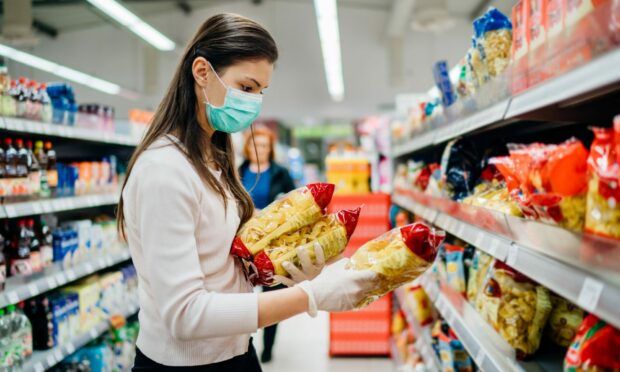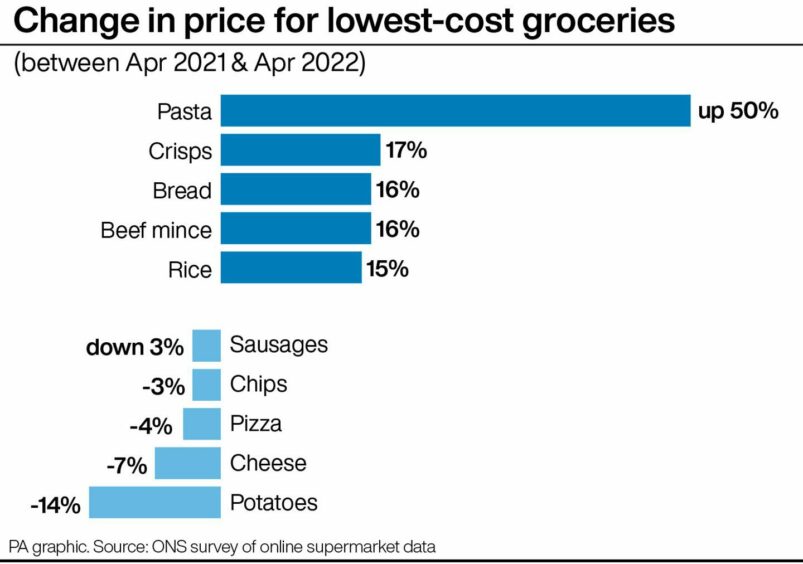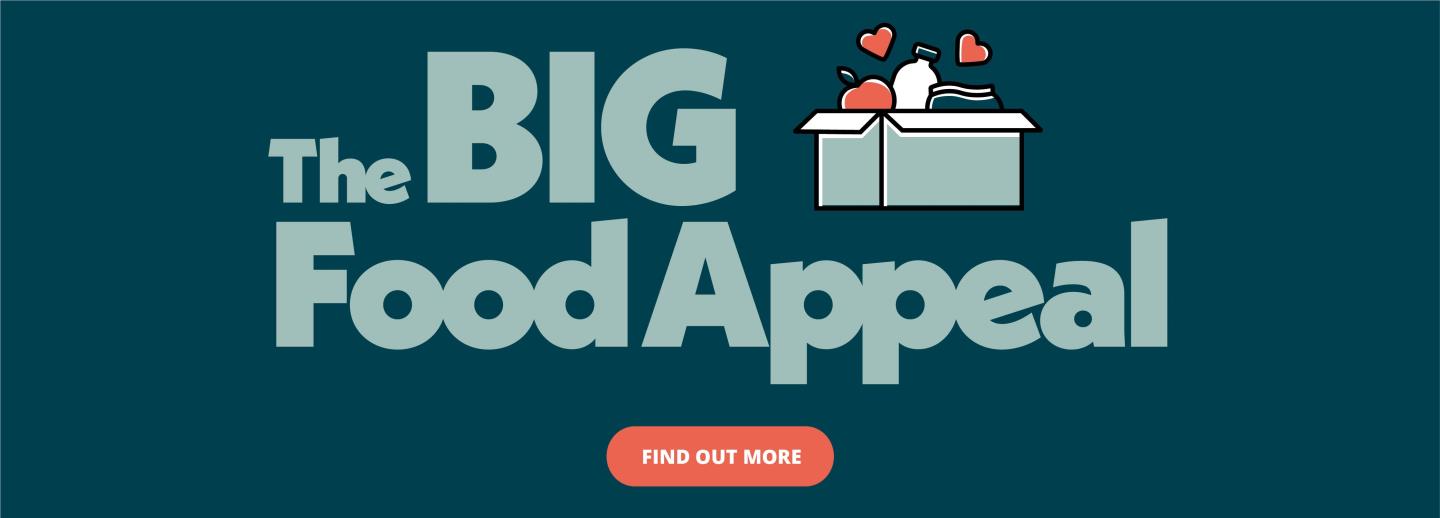The price of the cheapest pasta available in supermarkets has risen at the fastest rate compared to other goods, highlighting how the cost of living crisis is taking a toll on those on low incomes.
New figures have tracked the rise in price amongst low-cost staples poorer families tend to rely on such as pasta, which has risen 50% in price in the year, as well as bread and mince which are both up 16%, according to figures from the Office for National Statistics (ONS).
Food writer and campaigner against poverty Jack Monroe has said the figures confirm that “it is more expensive to be poor”.
It was Monroe who revealed research which showed low costs staples appeared to be rising higher than other goods as well as the national rate of inflation.
The @ONSfocus @ONS have released new data today tracking the price rises of the lowest-cost grocery items over the last year, and – backing up my own research and evidence from January – the hikes in the value brands and basics have been much higher than average inflation stats..
— Jack Monroe (@BootstrapCook) May 30, 2022
In what the statistics body described as “highly experimental research”, the data found that more of the lowest-priced everyday grocery items have seen a notable variation in price change, with some items showing increases of over 15%.
But other items fell in price.
As a result, overall ONS said that the lowest-priced items have increased in cost by around as much as average food and non-alcoholic drinks prices, with both rising around 6% to 7% over the 12 months to April 2022.
The items where the lowest prices rose at the fastest rate were pasta, up 50% in the 12 months to April 2022, while crisps were up 17%, bread and minced beef were up 16%, while rice was up 15% in the same period, ONS said.
For six of the 30 items, price decreases were measured – potatoes fell 14%, cheese was down 7%, pizza was down 4%, chips and sausages were both down 3% and apples were 1% in the year.
The ONS collected online grocery price quotes from seven major supermarket retailers’ websites. Prices were assessed for 30 everyday food and drink items, covering fresh fruit and vegetables, cupboard staples, chilled products, as well as meat and fish.
Discount chains Aldi and Lidl were not included as they do not allow customers to shop online.
Consumers ‘increasingly concerned’ about household finances
Meanwhile, the boss of Sainsbury’s has said the grocery chain will continue to pump funds into offsetting rising costs over the rest of the year as shoppers become “increasingly concerned” about their finances.
The UK’s second largest supermarket chain said it will invest more than £500 million into lower pricing by March 2023 as part of a long-term plan focused on value.
It comes amid a surge in inflation, with the Office for National Statistics (ONS) revealing that food inflation grew by 6.8% last month, on the back of sharp increases for meat and dairy products.
Sainsbury’s chief executive Simon Roberts said the supermarket has had to pass on some increases in the price of essential products, such as milk, but stressed that it has invested money to ensure smaller rises than rivals.
“We have a really important relationship with our suppliers and will work with them when the cost of food production is going up and impacting upon farmers,” he said.
“Increases in price are at the front of customers’ minds because they are everywhere, so we are ensuring we limit those and, when we have to make increases, offer better value than the rest of the market.
“Customers are making choices about where they spend money based on their household finances right now so we have to make it easy for them to manage their budget in our shops.
“They are increasingly concerned about their spending and we want them to know we recognise that and are doing everything we can.”
Price lock the ‘essentials’
Sainsbury’s said price investment will be focused on essential items, such as milk, eggs, meat, fish, fruit and vegetables, and key household products.
The pricing strategy includes its “price lock” campaign, which commits to holding the price of more than 1,800 items for at least eight weeks.
It is also continuing with its Aldi price match on a raft of products as its German discount rival reports increasing sales amid the cost-of-living crisis.
Mr Roberts was optimistic that customers will splash out for the jubilee weekend with bumper celebrations.
He said: “People are still looking for occasions to celebrate despite the backdrop so we are hopeful that we will see plenty of these over the summer, plenty of big BBQs if the weather is good.”
Sainsbury’s commitment comes after Iceland supermarket chain managing director Richard Walker said some of Iceland’s customers are “disappearing into food banks”.
Help is near you
The Press and Journal is trying to raise awareness of the help out there for those struggling with the cost of living through its Big Food Appeal.
Our interactive map shows the foodbanks near you, and we are working hard to debunk some of the myths around who can access such help.





Conversation